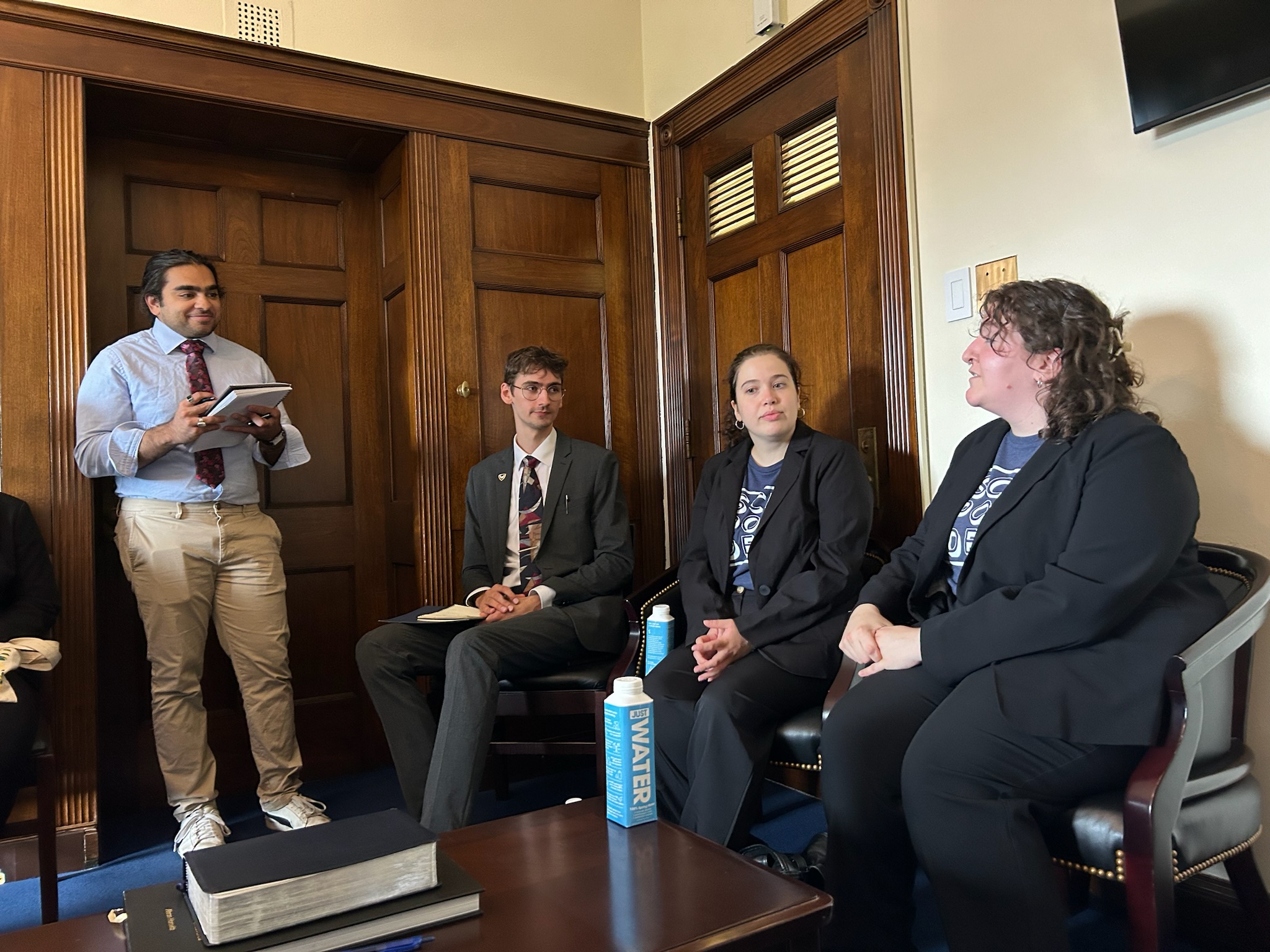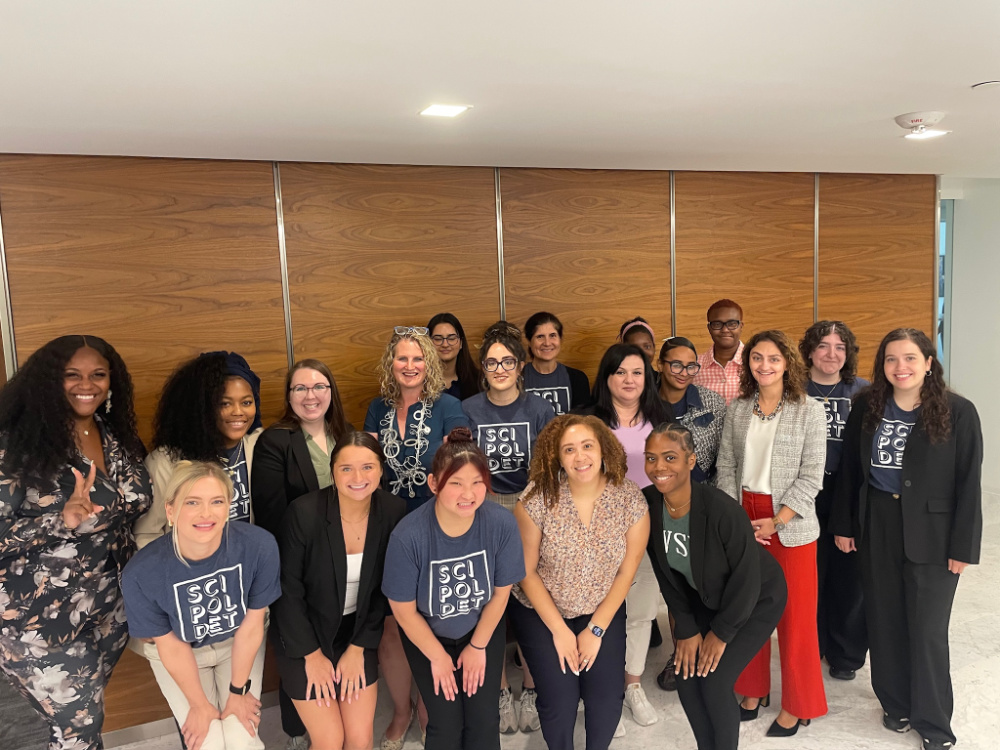Wayne State’s Science Policy Network-Detroit (SciPol-Detroit) recently completed its third annual trip to Washington, D.C., to advocate for federal science funding and science-based policies.
A group of 18 students and scientists from across all training levels met with the offices of nine Michigan lawmakers on Capitol Hill. The students advocated for the Environmental Justice for All Act, the MOMS Act, the IMPROVE Act, and increased federal science funding.
“This is the first year where we worked closely with Lewis-Burke Associates LLC under Wayne State University’s new partnership to help prepare, plan and coordinate our trip. Dr. Nicole Parker and Josh Harder were really instrumental in making this trip the success that it was,” said Clara G. Zundel, Ph.D., who is the SciPol-Detroit postdoctoral liaison and postdoctoral research fellow in the Department of Psychiatry and Behavioral Neurosciences in Wayne State’s School of Medicine. “This year’s trip presented unique planning challenges due to it being an election year and other unprecedented events that coincided with our visit. However, we were able to work around these challenges and still provide a rewarding advocacy experience for our members.”
Lori Pile, Ph.D., associate dean of undergraduate studies in the College of Liberal Arts and Sciences and a faculty advisor for SciPol-Detroit, was a first-time attendee.
“I was impressed by all of the participants,” said Pile. “The legislative staff members were engaged with SciPol-Detroit members, the staff at Lewis-Burke Associates were excellent hosts and, most importantly, our Wayne State students and postdoctoral fellows were incredibly prepared and professional in presenting their requests for support of our three advocacy topics.”
SciPol-Detroit vice president Emma Fidler said, “These meetings are advocacy in action. Seeing scientists in training using their knowledge and experience to inform their representatives about evidence-based policy is what it’s all about. Being a science communicator doesn’t start when you get the degree; we encourage students to find their voice and use it to advocate for change now.”

Not only did the group have the opportunity to advocate on behalf of evidence-based policies important to them, but they also engaged in professional development panels where they heard from experts working at the intersection of science and policy.
“In line with Wayne State’s College to Career initiative, SciPol-Detroit members were able to engage with scientists working at the Environmental Protection Agency and at Lewis-Burke Associates to explore careers outside of the traditional academic track,” stated Katie Dwyer, SciPol-Detroit E-board member and a Ph.D. candidate in the Department of Biological Sciences. “The experience was a powerful reminder that a career in science doesn’t have to end at the lab bench or within the confines of academic journals.”

Brenna Friday, SciPol-Detroit president, and Ph.D. candidate in the Department of Biological Sciences, stressed how important D.C. Hill days are for professional development.
“Through these advocacy experiences, I’ve improved my communication skills and understanding of the policy-making process, but they’ve also opened my eyes to the impact my science and my voice can make outside of the lab,” said Friday.
The trip also made an impact on Taylor Singleton, an undergraduate student.
“As a rising senior at Wayne State University, majoring in public health and minoring in medical humanities, advocating on behalf of health equity for my community is beyond important to me. This was my second year visiting Washington, D.C., with Science Policy Network-Detroit, and this year I had an opportunity to advocate on behalf of the Connected Maternal Online Monitoring (MOM) Act and showcase my passion for eradicating racial, ethnic and socioeconomic health inequalities.”
This trip was supported by generous donations from the Office of the President, the Department of Psychiatry and Behavioral Neurosciences, the Department of Biological Sciences, the College of Liberal Arts and Sciences, the Honors College, the Division of Research and Innovation, and the Office of Government and Community Affairs. Sci-Pol Detroit also received a microgrant from the National Science Policy Network to support the trip.
